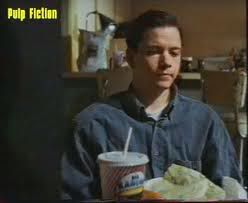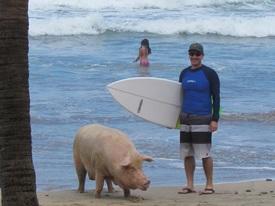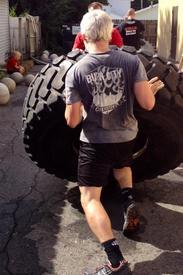How much harder is a full marathon compared to a half?
Replies
-
A HM every other day actually sounds like a pretty good way to build base if one can't run every day. I think that Arthur Lydiard would approve. A second, short and easy, run on those days would help even more.0
-
A HM every other day actually sounds like a pretty good way to build base if one can't run every day. I think that Arthur Lydiard would approve. A second, short and easy, run on those days would help even more.
Maybe so. Unconventional to be sure. You are getting up into LSD range on each one of those though, depending upon your pace. Plenty of recover time too. I suppose if you added some fartleky stuff in one of them and a tempo section in another it could work. I'd think that fewer miles more frequently would be more effective though. *shrug*0 -
A HM every other day actually sounds like a pretty good way to build base if one can't run every day. I think that Arthur Lydiard would approve. A second, short and easy, run on those days would help even more.
Maybe so. Unconventional to be sure. You are getting up into LSD range on each one of those though, depending upon your pace. Plenty of recover time too. I suppose if you added some fartleky stuff in one of them and a tempo section in another it could work. I'd think that fewer miles more frequently would be more effective though. *shrug*
What about the long runs all being 16+? Do you guys believe in alternating the long runs like 12, 20, 12, 20 or keeping all of them long?0 -
about 50% harder.0
-
about 50% harder.
We've already been over this. 0
0 -
What about the long runs all being 16+? Do you guys believe in alternating the long runs like 12, 20, 12, 20 or keeping all of them long?
I never step back to 12 after a 20. I often do 20s for three straight weeks. I might step back to 16 or something. It all depends on how well you recover from your 20s.0 -
A HM every other day actually sounds like a pretty good way to build base if one can't run every day. I think that Arthur Lydiard would approve. A second, short and easy, run on those days would help even more.
Maybe so. Unconventional to be sure. You are getting up into LSD range on each one of those though, depending upon your pace. Plenty of recover time too. I suppose if you added some fartleky stuff in one of them and a tempo section in another it could work. I'd think that fewer miles more frequently would be more effective though. *shrug*
What about the long runs all being 16+? Do you guys believe in alternating the long runs like 12, 20, 12, 20 or keeping all of them long?
Maybe not 12, 20 during the final stages of marathon training. More like 16, 20, 17, 20. Depends on your level of fitness too, obviously. I don't think back to back 16s would be that taxing. Not like 20s on back to back weeks would be.0 -
about 50% harder.
We've already been over this.
Actually that would imply the second half is actually twice as easy as the first half.
First half is 13.1 miles. 50% harder would mean 13.1 + (13.1 / 2) = 19.65 miles assuming every mile is equally hard.
The correct incorrect answer would be 100% harder. 0
0 -
about 50% harder.
We've already been over this.
Actually that would imply the second half is actually twice as easy as the first half.
First half is 13.1 miles. 50% harder would mean 13.1 + (13.1 / 2) = 19.65 miles assuming every mile is equally hard.
The correct incorrect answer would be 100% harder.
Look at the big brain on Brad! :laugh:0 -
I say you can do the Marathon.
You are a runner!
The bit about your age is bunk.
$.02 Z.0 -
oh yeah, not letting the thread die just yet...................
I realize I have more to add. After reading all six pages of responses I thought I did it all wrong. My first organized run was the full and I trained alone. I did Hal Higdon's novice for full. I love that guy. Never met him.
I'm not off the full. Now I volunteer at mile marker 19 because that was the WORST for me. I even go out to that marker when I finish a half, just to support the runners. I really enjoy running and encourage others to just keep running.
$.04 Z0 -
about 50% harder.
We've already been over this.
Actually that would imply the second half is actually twice as easy as the first half.
First half is 13.1 miles. 50% harder would mean 13.1 + (13.1 / 2) = 19.65 miles assuming every mile is equally hard.
The correct incorrect answer would be 100% harder.
Look at the big brain on Brad! :laugh:
Ha, I totally suck at Math and even I was all...no, 100% -- at the very minimum. 50% would be like 19.7ish miles. But running still doesn't work that way. 0
0 -
 0
0 -

*thumbs up*0 -
Sorry if this post doesn't land in the right spot, but thanks for the responses to my unconventional approach. Yes, I am running a half every other day at around 9:00/mi. I was doing shorter more frequent runs but that apparently contributed to shin splints and being sidelined for Nov-Dec. Bottom line is that at 43, my joints and bones seem to need a full day off from running. Cardio and muscles seem fine- I am not really sore even after the long runs. Time management is also an issue since I have two kids and an amazing wife to spend time with. I can swing a half "commuting" if I get up early enough. I cross train on the alternate days and take one weekend day off completely.
Thanks again, everyone!0 -
So glad to see this still going. :laugh:0
-
I ran 2 half marathons and 4 Marine Corps marathons, 20 years ago. The half was fun too me and I used it as part of my training to motivate me. The full marathons were a hell of a lot harder, required more training and commitment, but was much more rewarding. The first full I went out to finish, the next 3 were like being addicted, I just wanted to beat my previous time. I actually ran one with the flu( realized morning of race I had it) but like dumb *kitten*, still ran. Well, either way, good luck and HAVE FUN!!!!!!! It's worth it in the end, in my opinion.0
-
This might be a good place to get some advice.
I ran my first half back in Oct of 2011, have ran at leat a half almost every weekend since. I am planning to run a full in Nov, although I may run one the first weekend in Sept.
I am several weeks ahead in my training. Ran 20 miles 3 weeks ago, followed up with an 18, then 16. I am concerned about overtraining.
I have registered for a half Sept 2nd. They also have the full that same day. If I felt strong at the halfway point, I was considering continuing to run and at least get in a 18-20 mile run or keep going for the full. Not sure that it is wise to consider running the full in Sept and maybe, I should hold back on my training to be ready for the full in Nov. I would have to taper for the Sept full.
If I didn't finish the full in Sept , I may have over done it and not be able to be ready for the full in Oct.
May be wiser to pull back a bit now and run the half in Sept and be ready for the full in Nov.
Thanks for any help.0 -
This might be a good place to get some advice.
I ran my first half back in Oct of 2011, have ran at leat a half almost every weekend since. I am planning to run a full in Nov, although I may run one the first weekend in Sept.
I am several weeks ahead in my training. Ran 20 miles 3 weeks ago, followed up with an 18, then 16. I am concerned about overtraining.
I have registered for a half Sept 2nd. They also have the full that same day. If I felt strong at the halfway point, I was considering continuing to run and at least get in a 18-20 mile run or keep going for the full. Not sure that it is wise to consider running the full in Sept and maybe, I should hold back on my training to be ready for the full in Nov. I would have to taper for the Sept full.
If I didn't finish the full in Sept , I may have over done it and not be able to be ready for the full in Oct.
May be wiser to pull back a bit now and run the half in Sept and be ready for the full in Nov.
Thanks for any help.
Couple points to consider.
You should have one recovery day for every mile raced. So, if you race 26.2, you should have almost 4 weeks of recovery time. For some runners, this means nothing to walking and other forms of cross training for that time. More experienced runners will take less time off from running, but start back up with real easy running and a lot fewer miles than during marathon training. As you stated your first HM was just this past year, I would think you would fall more toward the former. That being said, doing a marathon in October and one in November would not be something I would suggest.
Running the HM in September is a great idea for your build up to a marathon. If it's early enough in September, it might be appropriate for either an October or November marathon. I would discourage the idea of "running it and seeing how I feel" and making a decision to go the entire route. In order to get the best benefit from that HM, you should be racing it. Your HM race pace is going to be significantly faster than your marathon pace. If raced properly, you won't feel like you can go any further when you finish.
As for your training, if you are already doing 20s, then I think you might be on the verge of overdoing it. I ran the Baltimore Marathon last year on October 15th. I did my first 20 mile run September 3rd. I was doing high mileage, but the long runs weren't up to that level (55 to 65 miles per week). By the time the race rolled around, I was fit and fresh after a 10 day taper and I ran a 3:26 (a 12 minute PR). Have you looked at any marathon training plans, or are you just winging it? Hal Higdon is generally recognized for really good plans.
I hope this helps. Let me know if you have any questions.0 -
MUCH harder. when I ran marathons I ALWAYS hit the wall around mile 17 and struggled until mile 22. it never failed to slap me right in the face and shake me to my core. I almost gave up the first time.
BUT
If you train for - and complete - a marathon, the feeling is nothing to be compared to. Nothing can stop you after that. You ran a MARATHON! When I trained I started in March and the race was in Sept., Oct or Nov. depending on the one I did. I only ran 22 miles for my long run before the race, but I always wished I had done a full one just to be fully prepared. I always needed more fuel for the extra distance than I thought. Sharkies were my best friend. And Gu. The Lemon and Banana ones were my favorite.0 -
Helps a whole lot. Thanks! I had a typo when I sated "be ready for the full in Oct", I mean't Nov. I will pull back a bit and just run the half in Sept. and plan for the full in Nov.(though I enjoy the 16 mile runs)Again, Thanks! The advice that I would give for my kids would be chose one or the other, don't try to train for both. This advice is what I should give myselfThis might be a good place to get some advice.
I ran my first half back in Oct of 2011, have ran at leat a half almost every weekend since. I am planning to run a full in Nov, although I may run one the first weekend in Sept.
I am several weeks ahead in my training. Ran 20 miles 3 weeks ago, followed up with an 18, then 16. I am concerned about overtraining.
I have registered for a half Sept 2nd. They also have the full that same day. If I felt strong at the halfway point, I was considering continuing to run and at least get in a 18-20 mile run or keep going for the full. Not sure that it is wise to consider running the full in Sept and maybe, I should hold back on my training to be ready for the full in Nov. I would have to taper for the Sept full.
If I didn't finish the full in Sept , I may have over done it and not be able to be ready for the full in Oct.
May be wiser to pull back a bit now and run the half in Sept and be ready for the full in Nov.
Thanks for any help.
Couple points to consider.
You should have one recovery day for every mile raced. So, if you race 26.2, you should have almost 4 weeks of recovery time. For some runners, this means nothing to walking and other forms of cross training for that time. More experienced runners will take less time off from running, but start back up with real easy running and a lot fewer miles than during marathon training. As you stated your first HM was just this past year, I would think you would fall more toward the former. That being said, doing a marathon in October and one in November would not be something I would suggest.
Running the HM in September is a great idea for your build up to a marathon. If it's early enough in September, it might be appropriate for either an October or November marathon. I would discourage the idea of "running it and seeing how I feel" and making a decision to go the entire route. In order to get the best benefit from that HM, you should be racing it. Your HM race pace is going to be significantly faster than your marathon pace. If raced properly, you won't feel like you can go any further when you finish.
As for your training, if you are already doing 20s, then I think you might be on the verge of overdoing it. I ran the Baltimore Marathon last year on October 15th. I did my first 20 mile run September 3rd. I was doing high mileage, but the long runs weren't up to that level (55 to 65 miles per week). By the time the race rolled around, I was fit and fresh after a 10 day taper and I ran a 3:26 (a 12 minute PR). Have you looked at any marathon training plans, or are you just winging it? Hal Higdon is generally recognized for really good plans.
I hope this helps. Let me know if you have any questions. By the way, I used Hal Higdon's training program for my first. Now, I am considering taking some of his and mixing it with a plan by Runner's World. I probably should do one or the other for my first. 0
By the way, I used Hal Higdon's training program for my first. Now, I am considering taking some of his and mixing it with a plan by Runner's World. I probably should do one or the other for my first. 0 -
I absolutely love to jog. I like being outside. I like seeing the scenery. I like the freedom of the movement.
I ran a marathon. God, it was so BORING!
Running for one hour is all the things I mentioned above. Running for two hours is monotony -- excruciating monotony. You have to run a bunch of two hour runs prior to the race to train. Then, the race is even further and longer.
Did I mention that your mind and body are kinda toast after a two hour run? You're toast for the entire rest of the day.0 -
Alot harder0
-
My guess is twice as hard.0
-
Twice as hard as it was the first time I said goodbye.0
-
1. Great time for half!
2. I've done three marathons and about 10 or so halfs. I'm 48. To me a marathon is a whole another animal. Halfs take endurance but marathons take "gumption". I think if you are in shape you could do a relatively painless half but even in good shape running a marathon takes a lot out of you.
That being said, I love marathons. You just have to train for them and be ready to hurt a bit on those last 3-4 miles. I have yet to run an entire marathon..the best I've done is run the 22 miles straight and then run/walk the last 4. I know there are very good marathoners who do the run/walk and do that the entire marathon.
Now you have heard from a novice marathoner. I'd love to hear the opinion of more experienced marathoners.0 -
Omg, the horror stories.... I don't believe I'll ever be badass enough to finish a full.0
-
...A half is fun. A full is grueling...
^ This, but it's so worth it. If you can do a half and have it be easy and fun, then you can finish a full. There will be pain, though, and you will need recovery time - which I didn't seem to need for a half. I say go for it. It's an awesome achievement! I personally never hit the wall in a half, but I hit the wall hardcore around mile 20-22 in the full. The last mile always seems easier for me - must be psychological...:flowerforyou:0 -
I vote 3x as hard? :laugh:0
-
It seems like doing a full takes the fun out of it. It's more serious. Halfs are kind of easy. I think the full is 26.2 for a reason. That is a very difficult length. It wasn't an accident that they picked that distance. It's very difficult, from what I hear. If it was 20, anyone vcould do it. It's the extra 6.2 that makes it a different thing entirely.
Depends upon what you consider fun.
^ This. I've read many of the posts here, and I think you've gotten the idea. I did want to respond to this though. I find it funny that so many people here have mentioned a 13.1 being easy or fun. I think 13.1 is the perfect distance for a competetive run, and it has nothing to do with fun or easiness. At this distance you have to train, but you can also train hard to go "fast" I personally never have "fun" doing half marathons. I push myself to the absolute brink in regards to pace.
Training for a full on the other hand was a blast, and running the actual event is amazing, and can be rather moving. It does take up a significant amount of your time to train, and it will take a rather awe inspiring amount of effort. My first was Chicago, and it blew my mind.0
This discussion has been closed.
Categories
- All Categories
- 1.4M Health, Wellness and Goals
- 398.1K Introduce Yourself
- 44.7K Getting Started
- 261K Health and Weight Loss
- 176.4K Food and Nutrition
- 47.7K Recipes
- 233K Fitness and Exercise
- 462 Sleep, Mindfulness and Overall Wellness
- 6.5K Goal: Maintaining Weight
- 8.7K Goal: Gaining Weight and Body Building
- 153.5K Motivation and Support
- 8.4K Challenges
- 1.4K Debate Club
- 96.5K Chit-Chat
- 2.6K Fun and Games
- 4.8K MyFitnessPal Information
- 18 News and Announcements
- 21 MyFitnessPal Academy
- 1.5K Feature Suggestions and Ideas
- 3.2K MyFitnessPal Tech Support Questions

















